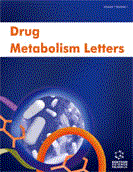Abstract
Background: Cytochrome P450 (CYP) 2D6 is a major drug-metabolizing enzyme, responsible for eliminating 25% of marketed drugs. We recently identified SHP as a negative regulator of CYP2D6 expression and showed that factors that alter SHP expression influence CYP2D6 expression. Fenofibrate, an agonist of peroxisome proliferator-activated receptor α(PPARα), has been previously reported to upregulate SHP expression in the mouse liver. The objective of this study was to determine whether fenofibrate decreases CYP2D6 expression via upregulating SHP expression.
Methods: CYP2D6-humanized transgenic mice were administered with fenofibrate (100 mg/kg/day intraperitoneally for 5 days) or vehicle control. Hepatic mRNA and protein expression levels of CYP2D6 and SHP were measured.
Results: Results showed that while mRNA levels of SHP did not differ between the groups, protein levels of SHP increased by 2-fold in fenofibrate-treated mice. Despite the increased SHP protein levels, CYP2D6 expression did not decrease at the mRNA or protein levels. Similar results were observed in human hepatocytes treated with fenofibrate. Results from transient transfection and promoter reporter assays indicate that PPARα can transactivate CYP2D6 promoter, suggesting that the lack of CYP2D6 downregulation by fenofibrate may be in part due to the activation of CYP2D6 promoter by PPARα.
Conclusion: These results indicate that fenofibrate has minimal effects on CYP2D6 expression despite increased SHP expression.
Keywords: Fenofibrate, PPARα, CYP2D6, SHP, drug interaction, Cytochrome P450.
Graphical Abstract
 17
17 3
3 1
1 1
1










